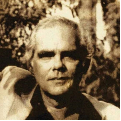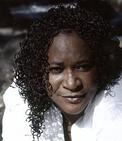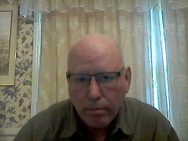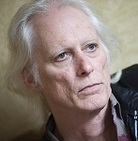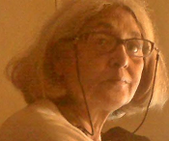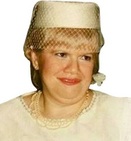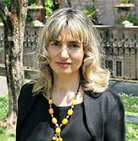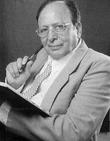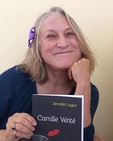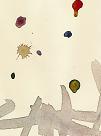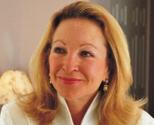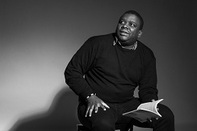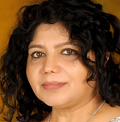Authors and Publishers
A LITERARY CRITIC'S LAMENT ... for fellow book reviewers, authors and publishers
While many authors of books of poetry, short stories,novellas and essays are concerned with the problems with getting such books sold I would point out that:
- 1) people are reading such works today, but many are just not spending money on literature unless the author in question is a celebrity or a newly-discovered "sensation"; and
- 2) many authors underestimate or forget about libraries as important institutions, and of the inevitability of electronic publication taking an increasingly larger place in book publishing.
To make one's living solely from book publication is not something many of the world's authors can boast of. Most modern libraries are now digitalizing their collections so that they are available to multitudes. Try to get your books into local and national library collections. Libraries and national archives will have your books in their collections longer than private individuals, and they can be potentially read by several persons long after you have left this world. Many small press and independent publishers find their authors on the internet. My publisher in India - Cyberwit - found me on the internet, and extended an invitation which I accepted. The rest is history, including eight publications with Cyberwit.net to date. Use the internet wisely ... and you will be noticed.
Another thing: I note that many new authors-to-be seem to be offended when asked to share a tiny bit of the initial production costs for their books, when asked to help with marketing efforts, when offered an electronic publication first - in order to test out the market before eventual print publication ... GET REAL PEOPLE! It is not ALL about YOU! Writing is an art form; but being an author is a career and a business. Put in the work, prove yourself, pay your dues, build up interest for your work, cultivate a clientele for your writing. That royalty contract you dream of can be yours if you approach the business of being an author in a professional way, and exercise patience. There are small press and independent publishers out there who are looking for the right authors "to work with" (not just to publish); and there are still some reviewers (like myself) that are working to present your books to the world.
That being said, publishers and reviewers of books of poetry, short stories, novellas and essays seem to be fewer in number than previously, and because production and marketing costs are often higher than possible sales profits in the short run, the author must expect to do more than merely write "a good book". He/she should actively participate in the marketing process and use all possible venues (of which there are now many in this world of internet, Facebook, Twitter, networking sites, blogs, etc.) to market their works. If mainstream publishers are to prioritize these genres then sales must go up. If small press and independent publishers are to survive and compete with mainstream publishers for readers then they need the help of both authors and reviewers.
That being said, serious reviewers of books of poetry, short stories, novellas and essays do have their own issues ... some of which are important for authors to be aware of:
- 1) the fast-paced world of today demands perhaps a new discussion regarding kinds of literary reviews that are produced, and their function. In my opinion, for most literary journals there has to be a happy medium between the overly-academic reviews of the past decades and the one paragraph summations that tell you nothing about why the reviewer feels the book has or has not literary quality - a type of review which is popular today also because of limited space in magazines, periodicals, journals etc.
- 2) I feel that it would be quite interesting with a discussion amongst literary reviewers about the subject and the art and the occupation of reviewing. What standards, ethics, guidelines are in place today? Is reviewing a thankless job or a useless occupation? What are the important elements of review-writing today as opposed to before?
- 3) How do reviewers today feel about and tackle the difficulties: in placing reviews, in being honest vs. taking care of the author's or publishers feelings and needs: communicating the importance for the author of having balanced reviews and not just raves, the stupidity of authors flooding the internet with half-assed reviews of their books so that good ones are not interesting for publication, the problems involved with getting too close to the authors or publishers who wish to influence reviews or publish / quote only the most positive commentaries in order to increase sales etc.
- 4) How do reviewers feel about communicating to authors and publishers the importance of choosing the "right" reviewer - especially for the first review of the book? Serious literary journals rarely publish reviews of a book that has already been reviewed by several other persons and published all over the internet, or books that are more than one year old (yesterday's news). Difficulties in getting reviews placed in serious literary journals has an effect upon serious reviewers as well. Reviewers are also interested in "discovering" a unique work of literature or a new exciting author, and being the first man/woman out with a review. I always "google" authors that ask me to review their books to see how many other reviews are already on the internet. And I sometimes decline to review a book if there is little chance of getting yet another review published. There are exceptions: new genres of literature, new voices that are so special or avantgarde that they deserve a multitude of critical perspectives, and simultaneous multiple reviews from reviewers in different countries and in different languages upon worldwide book launching etc. Each reviewer must (himself/herself) judge the marketability of a review of a particular book vs. the importance of doing a review anyway either for the sake of supporting a particular work of importance or presenting one's own literary skills in an essay about a particular work.
- 5) Is it appropriate for a reviewer to ask an author to tell about his/her marketing plans? I do pose such questions, as it tells me much about the kind of review to write, about the necessity of eventually writing a review that can be tailored by the publisher to be shorter if necessary - while still respecting the context of the criticism, and also much about the longterm motivation and investment the author has. I often review interesting authors more than once in their literary careers, addressing changes and growth and development in their styles from book to book. If the author or publisher is "clueless" about marketing strategies and how a review will be used, then writing a smashing or well-written review can be a waste of time, as most reviewers are constantly looking for more places and more prestigious places to publish their reviews, and the competition is very stiff. Often we compete with ourselves between the various reviews that we write and submit.
Nowadays, many good authors have also been reviewers. Why is it that many reviewers get burned out so quickly? It is perhaps in part due to some of the issues that i have cited above? The job of the critic is to write literary criticism, and selling the book and holding the authors' hands etc. is really not our problem. It is - however - our problem to get our work published, and in good/appropriate literary journals, newspapers, magazines etc.
And what about the ethics of charging for book reviews? Many housewives make extra cash by writing short summations of books for large corporations in the USA, and make 50-75 bucks a shot. Good literary reviewers of small press literature usually work for free (unless commissioned to write a scholarly essay). Should reviewers get paid? If so, then by whom - the publisher, the author, the marketing company? And what are the possible ethical conflicts involved in that?
Some authors are highly sensitive to negative criticism, but yet authors crave assessment and "validation" ... another interesting topic: the psychology of reviewing and desiring to get reviewed. Are some authors simply not "mature" enough for constructive criticism? And are some reviewers too closed-minded and old-fashioned in their likes/dislikes? I encourage all reviewers to publish their philosophy of reviewing, what they look for etc. from time to time. This will help authors not only in their choice of a reviewer, but also give many authors some helpful insight in their approaches to their own future writing.
How relevant is contemporary literature in non-English language countries for today's global young people? Should all contemporary literature of quality only be in English? To be honest, in today's international market publishing in English gives the greatest possible world public ... albeit entails much competition. However, the reason that I employ multilingualism in most of my works is to reflect how today's world is and also to drive up interest in other languages and cultures instead of the standardized/Americanized supermarket culture that is replacing everything all over the world. This is - however - hard work for everyone ... but especially for you the author. Do not expect that a small press or independent publisher has the staff, the resources or the knowledge of several languages. This is a genre that most mainstream publishers will not even touch. Be willing to work long and hard with special publications, and be patient with and courteous to your publisher. Small press and independent publishers are more often than not only 1-3 persons dedicated to keeping new literature "alive".
If you as a reader or reviewer do not understand or know a word (in your own language or another) in a book ... then look it up and learn something damnit! People are sometimes lazy and impatient in today fast-paced world society. And authors need to remember that every word is precious. Published writing should not solely be an act of self-gratification or literary masturbation. People do not have the patience for it. Choose your words carefully, and economically. Novelists can learn much from good poets and short, short story authors.
Another thing: let's bring back the novellas. In today's society they must be perfect for the on-the-go reader. The problem is that most publishers will not publish collections of novellas, nor will they publish prose that is less than 50,000 words because the book binding should be a certain width to be visible on bookstore bookshelves etc.
I am initiating this discussion because I feel that authors and publishers need to understand what reviewing is like in today's world: what makes reviewers tick and continue to review etc.
- Adam Donaldson Powell, 2010
Authors
Keep in touch
Authors and Publishers
A LITERARY CRITIC'S LAMENT ... for fellow book reviewers, authors and publishers
While many authors of books of poetry, short stories,novellas and essays are concerned with the problems with getting such books sold I would point out that:
- 1) people are reading such works today, but many are just not spending money on literature unless the author in question is a celebrity or a newly-discovered "sensation"; and
- 2) many authors underestimate or forget about libraries as important institutions, and of the inevitability of electronic publication taking an increasingly larger place in book publishing.
To make one's living solely from book publication is not something many of the world's authors can boast of. Most modern libraries are now digitalizing their collections so that they are available to multitudes. Try to get your books into local and national library collections. Libraries and national archives will have your books in their collections longer than private individuals, and they can be potentially read by several persons long after you have left this world. Many small press and independent publishers find their authors on the internet. My publisher in India - Cyberwit - found me on the internet, and extended an invitation which I accepted. The rest is history, including eight publications with Cyberwit.net to date. Use the internet wisely ... and you will be noticed.
Another thing: I note that many new authors-to-be seem to be offended when asked to share a tiny bit of the initial production costs for their books, when asked to help with marketing efforts, when offered an electronic publication first - in order to test out the market before eventual print publication ... GET REAL PEOPLE! It is not ALL about YOU! Writing is an art form; but being an author is a career and a business. Put in the work, prove yourself, pay your dues, build up interest for your work, cultivate a clientele for your writing. That royalty contract you dream of can be yours if you approach the business of being an author in a professional way, and exercise patience. There are small press and independent publishers out there who are looking for the right authors "to work with" (not just to publish); and there are still some reviewers (like myself) that are working to present your books to the world.
That being said, publishers and reviewers of books of poetry, short stories, novellas and essays seem to be fewer in number than previously, and because production and marketing costs are often higher than possible sales profits in the short run, the author must expect to do more than merely write "a good book". He/she should actively participate in the marketing process and use all possible venues (of which there are now many in this world of internet, Facebook, Twitter, networking sites, blogs, etc.) to market their works. If mainstream publishers are to prioritize these genres then sales must go up. If small press and independent publishers are to survive and compete with mainstream publishers for readers then they need the help of both authors and reviewers.
That being said, serious reviewers of books of poetry, short stories, novellas and essays do have their own issues ... some of which are important for authors to be aware of:
- 1) the fast-paced world of today demands perhaps a new discussion regarding kinds of literary reviews that are produced, and their function. In my opinion, for most literary journals there has to be a happy medium between the overly-academic reviews of the past decades and the one paragraph summations that tell you nothing about why the reviewer feels the book has or has not literary quality - a type of review which is popular today also because of limited space in magazines, periodicals, journals etc.
- 2) I feel that it would be quite interesting with a discussion amongst literary reviewers about the subject and the art and the occupation of reviewing. What standards, ethics, guidelines are in place today? Is reviewing a thankless job or a useless occupation? What are the important elements of review-writing today as opposed to before?
- 3) How do reviewers today feel about and tackle the difficulties: in placing reviews, in being honest vs. taking care of the author's or publishers feelings and needs: communicating the importance for the author of having balanced reviews and not just raves, the stupidity of authors flooding the internet with half-assed reviews of their books so that good ones are not interesting for publication, the problems involved with getting too close to the authors or publishers who wish to influence reviews or publish / quote only the most positive commentaries in order to increase sales etc.
- 4) How do reviewers feel about communicating to authors and publishers the importance of choosing the "right" reviewer - especially for the first review of the book? Serious literary journals rarely publish reviews of a book that has already been reviewed by several other persons and published all over the internet, or books that are more than one year old (yesterday's news). Difficulties in getting reviews placed in serious literary journals has an effect upon serious reviewers as well. Reviewers are also interested in "discovering" a unique work of literature or a new exciting author, and being the first man/woman out with a review. I always "google" authors that ask me to review their books to see how many other reviews are already on the internet. And I sometimes decline to review a book if there is little chance of getting yet another review published. There are exceptions: new genres of literature, new voices that are so special or avantgarde that they deserve a multitude of critical perspectives, and simultaneous multiple reviews from reviewers in different countries and in different languages upon worldwide book launching etc. Each reviewer must (himself/herself) judge the marketability of a review of a particular book vs. the importance of doing a review anyway either for the sake of supporting a particular work of importance or presenting one's own literary skills in an essay about a particular work.
- 5) Is it appropriate for a reviewer to ask an author to tell about his/her marketing plans? I do pose such questions, as it tells me much about the kind of review to write, about the necessity of eventually writing a review that can be tailored by the publisher to be shorter if necessary - while still respecting the context of the criticism, and also much about the longterm motivation and investment the author has. I often review interesting authors more than once in their literary careers, addressing changes and growth and development in their styles from book to book. If the author or publisher is "clueless" about marketing strategies and how a review will be used, then writing a smashing or well-written review can be a waste of time, as most reviewers are constantly looking for more places and more prestigious places to publish their reviews, and the competition is very stiff. Often we compete with ourselves between the various reviews that we write and submit.
Nowadays, many good authors have also been reviewers. Why is it that many reviewers get burned out so quickly? It is perhaps in part due to some of the issues that i have cited above? The job of the critic is to write literary criticism, and selling the book and holding the authors' hands etc. is really not our problem. It is - however - our problem to get our work published, and in good/appropriate literary journals, newspapers, magazines etc.
And what about the ethics of charging for book reviews? Many housewives make extra cash by writing short summations of books for large corporations in the USA, and make 50-75 bucks a shot. Good literary reviewers of small press literature usually work for free (unless commissioned to write a scholarly essay). Should reviewers get paid? If so, then by whom - the publisher, the author, the marketing company? And what are the possible ethical conflicts involved in that?
Some authors are highly sensitive to negative criticism, but yet authors crave assessment and "validation" ... another interesting topic: the psychology of reviewing and desiring to get reviewed. Are some authors simply not "mature" enough for constructive criticism? And are some reviewers too closed-minded and old-fashioned in their likes/dislikes? I encourage all reviewers to publish their philosophy of reviewing, what they look for etc. from time to time. This will help authors not only in their choice of a reviewer, but also give many authors some helpful insight in their approaches to their own future writing.
How relevant is contemporary literature in non-English language countries for today's global young people? Should all contemporary literature of quality only be in English? To be honest, in today's international market publishing in English gives the greatest possible world public ... albeit entails much competition. However, the reason that I employ multilingualism in most of my works is to reflect how today's world is and also to drive up interest in other languages and cultures instead of the standardized/Americanized supermarket culture that is replacing everything all over the world. This is - however - hard work for everyone ... but especially for you the author. Do not expect that a small press or independent publisher has the staff, the resources or the knowledge of several languages. This is a genre that most mainstream publishers will not even touch. Be willing to work long and hard with special publications, and be patient with and courteous to your publisher. Small press and independent publishers are more often than not only 1-3 persons dedicated to keeping new literature "alive".
If you as a reader or reviewer do not understand or know a word (in your own language or another) in a book ... then look it up and learn something damnit! People are sometimes lazy and impatient in today fast-paced world society. And authors need to remember that every word is precious. Published writing should not solely be an act of self-gratification or literary masturbation. People do not have the patience for it. Choose your words carefully, and economically. Novelists can learn much from good poets and short, short story authors.
Another thing: let's bring back the novellas. In today's society they must be perfect for the on-the-go reader. The problem is that most publishers will not publish collections of novellas, nor will they publish prose that is less than 50,000 words because the book binding should be a certain width to be visible on bookstore bookshelves etc.
I am initiating this discussion because I feel that authors and publishers need to understand what reviewing is like in today's world: what makes reviewers tick and continue to review etc.
- Adam Donaldson Powell, 2010

 Items in cart - View Cart
Items in cart - View Cart 











































































